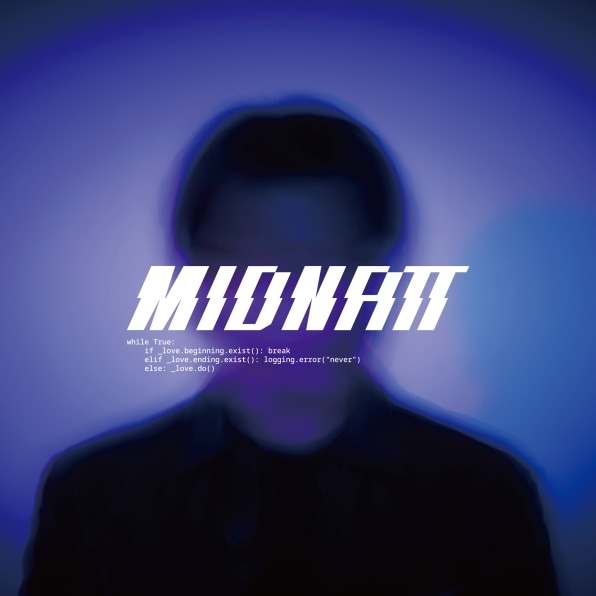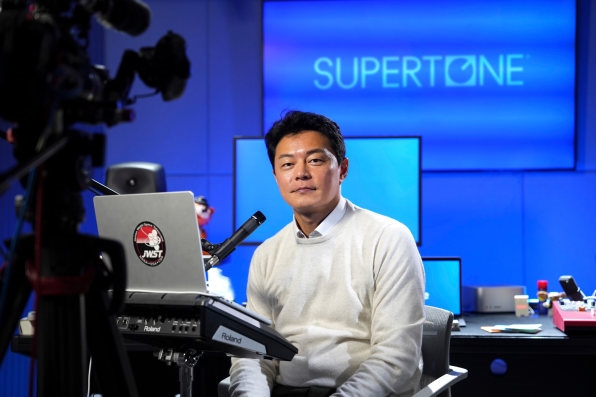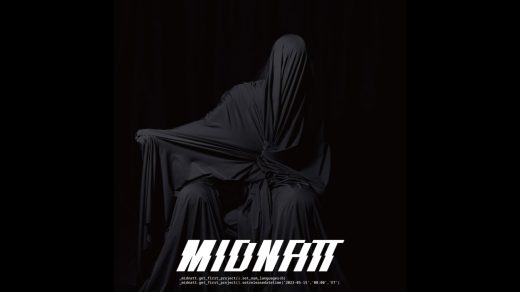This K-pop artist sings fluently in 6 languages. His secret? Voice AI
When Hybe, the entertainment juggernaut behind the K-pop group BTS, announces a new artist, the music world takes note. Hybe, after all, doesn’t just dominate K-pop. It’s also the parent company of Justin Bieber and Ariana Grande, among other artists, thanks to its 2021 acquisition of Ithaca Holdings.
So when Hybe teased, earlier this month, a new AI project for its Big Hit Music label involving an artist named Midnatt, K-pop enthusiasts and industry watchers alike began speculating about whether this would be an entirely AI-generated group.
The answer is no, but with a twist.
Midnatt is actually the alter ego of Lee Hyun, a longtime staple of Korea’s music scene who has been with Hybe since 2005, when it was called Big Hit Entertainment, eight years before BTS’s debut. Although longtime K-pop fans know Hyun’s voice—either from his seven-year run as a member of coed group 8eight, eight years as half of the duo Homme, or one of his numerous TV singing competition appearances—they’ve never heard it in this many languages. His new single, “Masquerade,” drops today simultaneously in Korean, English, Spanish, Chinese, Japanese, and Vietnamese.
“While my new identity may feel unfamiliar to fans, my goal has always been to reach the global audience,” Lee told Fast Company via email. “Rising above the language barriers would be the first step in this journey.”
Midnatt—which can be translated as “middle of the night’ in Swedish or “bare face” in Korean—marks the first collaboration between one of Hybe’s labels and Hybe IM, its interactive media arm. For the project, the two used the tech of Supertone, an AI voice synthesis company that Hybe acquired last year for $36 million. The brainchild of language processing and machine learning expert Lee Kyogu, Supertone is capable of accurately reproducing a singer’s voice while also enabling a host of adjustments.
Supertone’s “technology not only offers a variety of voice synthesis options but also allows for precise adjustments to each element that constitute a ‘voice,’” says the track’s producer, Hitchhiker, aka Choi Jin-woo. To ensure the multilingual tracks sound like they’re being sung by a native speaker, Midnatt recorded the track singing in all six languages. Hitchhiker then used Supertone’s technology to synthesize those vocals with recordings of native-speaking narrators in each language.

Supertone’s capabilities even contributed to Midnatt being able to feature on his own track in a woman’s voice, which was designed based on his voice elements. It’s something that Choi says few existing tools are able to do while still maintaining vocal clarity. “Supertone’s tool can produce high-quality content with close to zero errors compared to other tools that often produce distorted sound according to the range of pitch,” he says.
Using Supertone to launch a new K-pop artist globally, and in his “own” voice, is a natural move for Hybe. The company is one of the driving forces behind K-pop’s worldwide fanbase. BTS’s legions of worldwide fans, known collectively as ARMY, number in the tens of millions (at least). Hybe’s new girl group NewJeans, which debuted less than a year ago, just became the fastest K-pop group to hit 1 billion streams on Spotify. Finding K-pop artists who can speak—and sing—to these global fans in their own languages is a growing priority.

With BTS taking a temporary break as a group while its members begin fulfilling their mandatory military service® in South Korea, Hybe chairman Bang Si-Hyuk is looking even further ahead. “I have long doubted that the entities that create and produce music will remain human,” he told Billboard in a recent interview. “I don’t know how long human artists can be the only ones to satisfy human needs and human tastes. And that’s becoming a key factor for my operation and a strategy for Hybe.”
Despite the utility for labels and artists to tailor songs to audiences, AI voice synthesis tools like Supertone’s have been under increasing scrutiny as a growing number of unsanctioned songs replicating famous voices have hit the internet. A recent AI dupe of Drake and The Weeknd, called “Heart on My Sleeve,” amassed 10 million views on TikTok and a quarter-million Spotify streams in a few days before Universal Media Group, the label that represents both artists, got it scrubbed for copyright infringement.

Lee says Supertone doesn’t allow its tech to be used by the general public and ensures that anyone whose voice is being synthesized has signed off on it. He also says Supertone is exploring a way to discern real voices from synthetic ones. “Although this is a highly challenging endeavor,” he says, “we are committed to enhancing our existing detection algorithm for application in real-world situations.”
As for Midnatt, he’s excited to be part of Hybe’s AI moonshot program: “I’ve been in the music industry for a while now, and hope that my take on this challenge would leave a meaningful impact on fellow artists just as Neil Armstrong’s journey left a lasting impression.”
(22)



